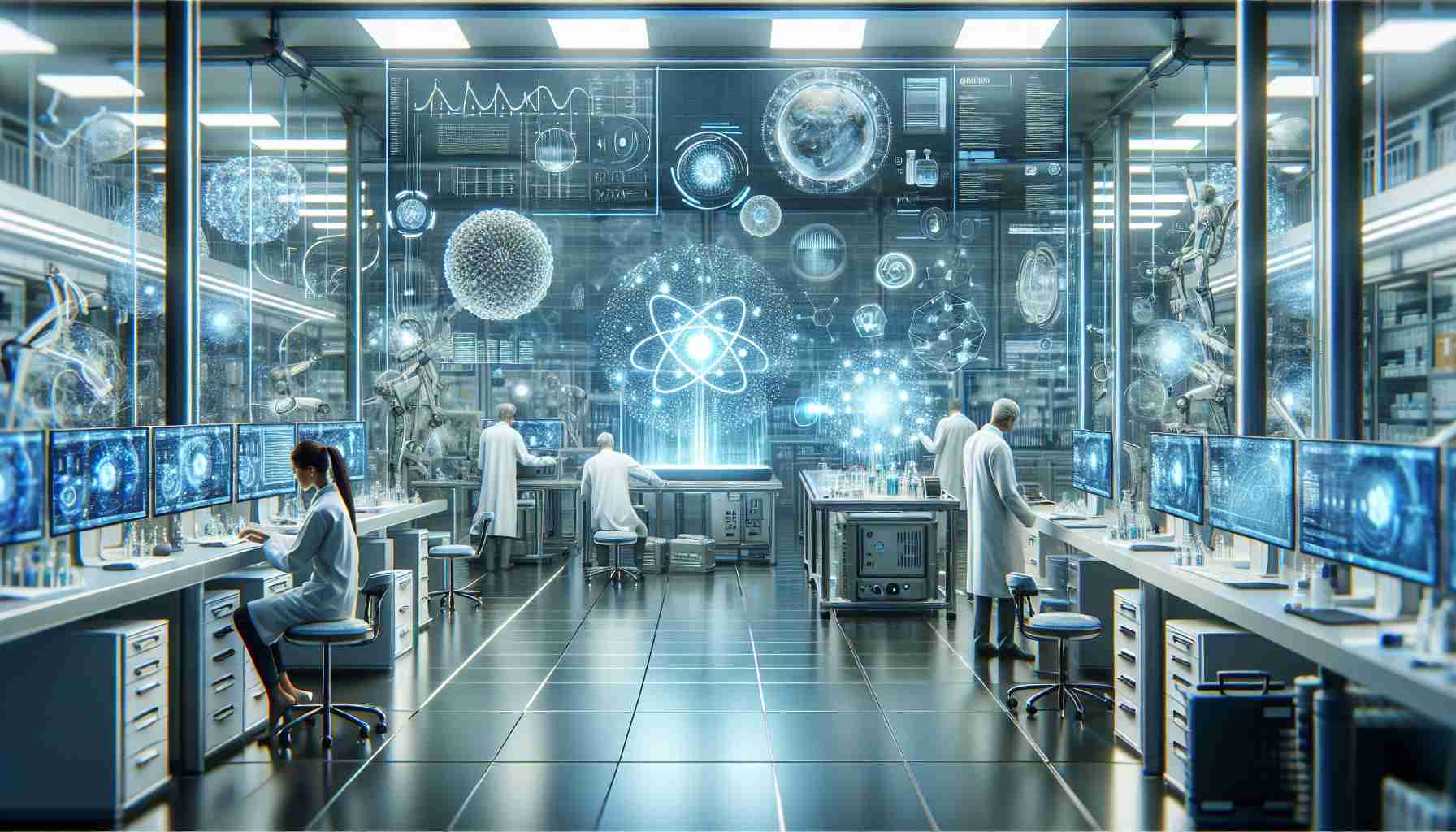In a groundbreaking advancement, researchers have unveiled a revolutionary technique poised to transform the medical landscape. This cutting-edge innovation was detailed in a study published earlier this week.
Game-Changing Discovery
The team of scientists has introduced a novel method that enhances the efficacy of existing treatments. This breakthrough holds the potential to significantly improve patient outcomes and reduce recovery times. It harnesses the power of state-of-the-art technology to provide more targeted and efficient solutions to prevalent medical challenges.
Implications for Future Treatments
The development represents a major leap forward in personalized medicine. By tailoring interventions to individual patient profiles, the approach holds promise for tackling a range of complex health issues. Experts assert that this could be a pivotal moment in the quest for more precise and effective therapies.
A Step Towards a Healthier Future
This innovation is anticipated to influence future research directions and treatment strategies. The scientific community is optimistic about its potential, with further studies already in the pipeline to explore its applications in various fields of medicine. As this technology continues to advance, it promises to pave the way for a healthier and more efficient healthcare system.
Stay tuned as researchers continue to delve into the possibilities presented by this transformative discovery, which is set to redefine how medical conditions are treated and managed in the coming years.
Can This Breakthrough Change Our Understanding of Medicine Forever?
In an era where rapid advancements in technology shape our future, a newly unveiled medical technique is set to redefine healthcare as we know it. While the original revelation focused on the efficacy of patient outcomes, a deeper investigation into the broader implications reveals multiple layers of impact on both society and technology.
Hidden Potential: Benefits Beyond Medicine
This innovative approach goes beyond enhancing treatments and enters into the realm of data analytics and AI integration in healthcare. As medical procedures become more personalized, the demand for sophisticated data processing tools increases. Researchers are just beginning to scratch the surface of how artificial intelligence can be harnessed to predict treatment responses in real time, boosting both precision and efficiency.
Moreover, the move towards personalized medicine is likely to spur the growth of genomic data analysis, opening up a world where individuals could receive custom-designed treatments based on their genetic makeup. This alignment of technology and healthcare not only improves individual well-being but also contributes to the broader quest for curing complex diseases.
Ethical and Privacy Controversies
As with any technological leap, ethical questions arise. The use of AI and vast amounts of personal data in healthcare raises significant privacy concerns. Who owns this data, and how is it protected? The potential for misuse or unauthorized access to sensitive health information could have dire consequences, sparking debates that regulatory bodies must address.
Furthermore, there is speculation about whether such personalized approaches might widen the gap between developed and underdeveloped regions, creating a divide where only those with access to cutting-edge facilities benefit from these advancements.
Disadvantages to Consider
One major disadvantage is the economic cost of integrating these technologies into existing healthcare systems. The initial investment for hospitals and clinics might be prohibitive, delaying widespread adoption. Additionally, there is the risk that over-reliance on technology could lead to reduced clinical skills among healthcare professionals, as they may depend more on AI diagnostics rather than their expertise.
How Can We Overcome the Challenges?
Implementing robust regulatory frameworks will be key to mitigating privacy and ethical concerns. Ensuring equitable access to technological resources is crucial to prevent disparities. Continuous dialogue between policymakers, technologists, and the medical community can drive creation of guidelines that maximize benefits while minimizing risks.
In a world rapidly evolving with each technological turn, staying informed and adaptable will be essential. This breakthrough not only paves the way for a healthier future but also challenges humanity to address the ethical complexities that arise with technological growth.
For more insights into the future of technology and healthcare, visit National Institutes of Health and World Health Organization.
